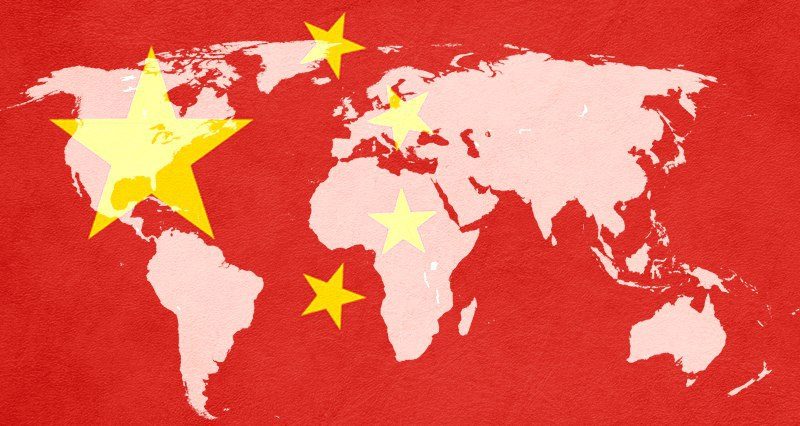For many years, speeches have been given at various international meetings to release or reduce the debts of some of the world’s poorest countries. These demands are highly expressed at every related or unrelated meeting of the United Nations.
Due to the COVID-19 outbreak, calls for a reduction in debt by poor African countries have increased. In a statement issued after the virtual meeting of G20 Finance Ministers and Central Bank Governors on April 15, the issue was addressed. Within the context of the ‘Debt Service Suspension Initiative for Poorest Countries’, debts for these countries were put off for 4 years.
China took a great deal of initiative in pressuring G-20 countries and the World Bank to suspend debts of these countries.
CHINA TOOK THE FIRST STEP
The first statement on the suspension of debts was made by China. On June 7 in Beijing, Ma Zhaoxu, the Chinese Deputy Foreign Minister, announced that debts of 77 countries had been temporarily suspended.
Deputy Minister Ma did not disclose which countries’ debts were suspended nor the details of the initiative. It was mentioned that these countries would be given the opportunity to suspend the principal and interest payments of debts for four years between May 1st, 2020 through December 31st, 2020. It is calculated that the total debt of principal and interest payments that these countries would have paid during this period was 12 to 14 billion USD.
China's relations with other countries have strengthened rather than "undermined" and the country's "friend circle" has expanded amid the global fight against #COVID19, says Ma Zhaoxu, the country's vice minister of foreign affairs.
more: https://t.co/cFj88iHGy6 pic.twitter.com/VZweR2az7y
— CGTN (@CGTNOfficial) June 7, 2020
WHICH 77 COUNTRIES?
There are 76 countries on the list of G20’s poorest countries. 76 borrowing countries of the “International Development Association / IDA” established under the World Bank are listed according to the continents and regions as follows:
Africa (40 countries): Benin, Burkina Faso, Burundi, Cameroon, Cape Verde, C.A.R., Chad, Comoros, Congo, Democratic Republic of Congo, Republic of Côte d’Ivoire, Eritrea, Ethiopia, Gambia, The Ghana, Guinea, Guinea-Bissau, Kenya, Lesotho, Liberia, Madagascar, Malawi, Mali, Mauritania, Mozambique, Niger, Nigeria, Rwanda, Sao Tome and Pr., Senegal, Sierra Leone, Somalia, South Sudan, Sudan, Tanzania, Togo, Uganda, Zambia, Zimbabwe
East Asia (14 countries): Cambodia, Fiji, Kiribati, Lao-PDR, Marshall Islands, Micronesia-FS, Mongolia, Myanmar, Papua New Guinea, Samoa, Solomon Islands, Timor-Leste, Tonga, Tuvalu, Vanuatu
South Asia (6 countries): Afghanistan, Bangladesh, Bhutan, Maldives, Nepal, Pakistan
Europe and Central Asia (5 countries): Kosovo, Kyrgyz Republic, Moldova, Tajikistan, Uzbekistan
Latin America And Caribbean (8 countries): Dominica, St Vincent, Grenada, Guyana, Haiti, Honduras, Nicaragua, St Lucia
The Middle East and North Africa (3 countries): Djibouti, Syrian Arab Republic, Yemen
When Angola is added to these 76 countries, the number reaches 77. The country’s on this list represent the wreckage of the American Century. Generally speaking, countries that have close relations with the United States or that are in internal turmoil caused by the US are the poorest in the world.
SAUDI FINANCE MINISTER: 20 BILLION DOLLARS IN TOTAL
On April 15, in the G20 Finance Ministers and Central Bank Governors Meeting, difficult negotiations were held on the suspension of debts. “As a responsible creditor, China will hold bilateral talks with the borrowing countries to enforce arrangements to suspend debt payments agreed by the G-20,” Chinese Finance Minister Liu Kun said.
German Finance Minister Olaf Scholz identified this move as an “international solidarity action on a historical scale” and stated that it enabled countries to invest in healthcare services “immediately and without case study”.
Finance Minister of Saudi Arabia, Mohammed al-Jadaan, who will host the G20 Summit this year, said that by suspending principal and interest payments, countries can spend more than 20 billion USD to improve their health systems and fight against COVID-19.
CHINA: THE WORLD BANK SHOULD BECOME A MODEL OF DEBT RELIEF
Reminding the World Bank of its claim to be “the world’s largest multilateral development bank”, China insisted that it should be “a model” in saving poor countries from the debt burden. Chinese Finance Minister Liu Kun told the World Bank Development Committee that commercial, multilateral and bilateral creditors should participate in joint actions determined by the G20 countries. “If the World Bank Group does not engage in collective actions to suspend debts, the claim of a global leadership role will seriously weaken,” said Minister Liu.
At a press conference within the scope of ‘Two Sessions’ in China on May 24, while Chinese Foreign Minister Wang Yi was answering the question of how China would help countries in Africa, he stated that they would actively participate in G20-Debt Service Suspension Initiative for Poorest Countries, and that they had bilateral support programs.
China’s ‘Two Sessions’: What is a ‘Moderately Prosperous Society’?
TWO BILLION DOLLARS IN AID
At the virtual meeting of the 73rd Session of the World Health Assembly on May 18, President Xi Jinping announced that China would contribute 2 billion dollars in aid to combat the coronavirus as well as for economic and social development, particularly in developing countries. It was stated that the help would be considered “international aid”. Chinese Deputy Minister of Foreign Affairs Ma also said that a 50 million dollars donation to the World Health Organization was granted in this context.
CONCLUSION: DEVELOP BY SHARING
It is necessary to pressure the imperialist Western states, which loan the poor countries most, and their insane financial institutions, to help alleviate the destitution they have helped create. China’s suspending 77 poorest countries’ debt for four years is an effective action of solidarity. It is a small contribution to development and the struggle for the development of oppressed countries, and shows important leadership. One solution would be the establishment of an international order that will end imperialist exploitation and aid national development by sharing, an idea which China has long advocated for. The world system wherein one side becomes very rich at the expense of the other has been in place far too long. With the construction of China’s Belt and Road initiative, justice, development, and peace will be the order of the day. It is a humanitarian responsibility to ensure that those who benefit most from this change are the poorest.









Leave a Reply